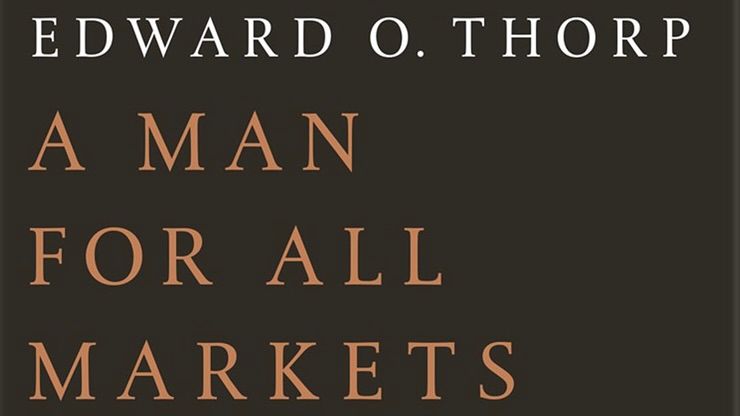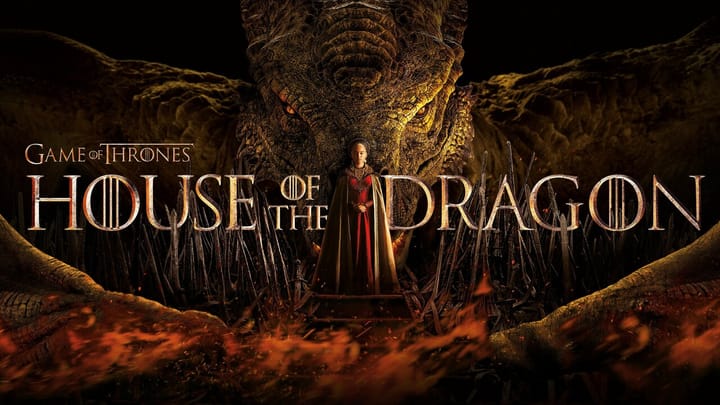A Man for All Markets by Edward Thorp Summary
The autobiography of Edward Thorp, one of the best quant investors of all time.

Edward Thorp is one of the best quant investors of all time.
Key Takeaways
- Study information theory to succeed in finance.
- You must study probability and statistics.
- Read every finance book. Thorp, like Nassim Taleb, the writer of the foreword to this book, read a ton of finance books.
- Gambling is a simplified version of investing.
- One hour of exercise today means one fewer day in the hospital when you're older.
- The surest way to make money is to play only the games where you are sure you have an edge. Figure out what you enjoy and are naturally suited to and go all in.
- Reach out to the up-and-coming talent in your industry who are in college. Befriend them and they can be powerful allies in a decade.
- It’s a huge mistake, in terms of happiness and satisfaction, to strive to be like Elon Musk and run the biggest and most technical businesses in the world. It is much better to create a smaller business that you own 100%, employ a few great employees (or none at all), achieve a net worth of $60-80 million, and then retire.
- Iterate on the automated crypto trading bot strategy. Then make a hedge fund around it. Get people to invest for a small fee.
- It is essential that you learn how to teach yourself because there are no teachers for how to win at blackjack or make a market-neutral hedge fund. A trading algorithm is an invention, it takes years of incremental improvement to get it right.
5 areas to maximize in life:
- Health
- Knowledge
- Relationships
- Wealth
- Fun
Frameworks for success:
Health
- Weigh yourself every morning and write down the weight. You will automatically eat more or less as necessary.
- Assuming you’re using a proven program, if you’re not getting stronger/bigger your form, diet, or sleep is off.
- Drink 150+ oz. Water a day.
- Hydration, diet, weights, cardio, sleep.
- Do 1 hour of exercise a day: could be a run, walk, or weights.
- Get regular doctor checkups.
Knowledge
- Read every day. As the day goes on, transition into easier mediums. Go from books -> audiobooks -> podcasts -> videos -> entertainment (wind down)
- Talk to a wide variety of people.
- Invest in education. “You can BUY the skills that make you $1M a year for like $50k. People just don't know it." – Alex Hormozi
- It is essential that you learn how to teach yourself because there are no teachers for how to win at blackjack or make a market-neutral hedge fund. A trading algorithm is an invention, it takes years of incremental improvement to get it right.
Relationships
- "In conversation, try getting others to do 70 percent of the talking without them noticing, and see the effect." – Robert Greene
- If you have high-quality friendships, a quality relationship will happen naturally.
- He learned that it’s better to avoid or finesse them rather than argue with or insult them.
- This is right out of Robert Greene’s 48 Laws of Power — (1) Avoid the unhappy and the unlucky and (2) suffer fools gladly.
- Spend time with smart people who have a sense of purpose.
- Reach out to the up-and-coming talent in your industry who are in college. Befriend them and they can be powerful allies in a decade.
Wealth
- The surest way to make money is to play only the games where you are sure you have an edge. Figure out what you enjoy and are naturally suited to and go all in.
- Write books, podcasts, Tweets, blogs, etc that spread your ideas. Other people will find you and it will unlock opportunities.
- It’s a huge mistake, in terms of happiness and satisfaction, to strive to be like Elon Musk and run the biggest and most technical businesses in the world. It is much better to create a smaller business that you own 100%, employ a few great employees (or none at all), achieve a net worth of $60-80 million, and then retire.
- You need to find what you love, continually learn about it, and then invent a unique and creative product that people want to consume.
- The future of work is highly automated, lean, and profitable.
Fun
- Always go to things that seem fun even if they cost a lot.
- Follow your natural curiosities. Meet others who have the same interests.
- You can make any activity more fun by having teams and having a prize for the winners or punishment for the losers.
- Roleplay/fantasy
- Music
- Do something that gets the heart going: hiking/exercising, drinking, cooking/eating, sauna/cold plunge.
Notes
- Ed Thorp says there are 2 kinds of investors: economists and information theorists.
- Economists are wrong and fail.
- Information theorists win.
- Thorp compares casinos to Wall Street and argues that gambling is a simplified form of investing. He explains how the same principles can be applied to both, but notes that the stock market has the added advantage that one cannot be banned for being successful.
- Thorp made a public statement in 1998 claiming that his personal investments had an annualized rate of return of 20% over a period of 28.5 years.
- Many successful speculators, after their first big break, get indicted in large-scale structures with multiple offices and morning meetings. They build more wealth but lose control. Not Ed. Once he has his big break, he started a small fund.
- Limit your exposure to the vagaries of human moods. Dealing with probabilities is difficult enough.
- Ed’s 5 areas of life:
- Life-long learning
- Time > money. Once you have audience money, stop working and work on other areas of life.
- Prioritize fitness. An hour of exercise a day.
- Relationships. Good husband, father, and friend.
- Have fun. Life is an adventure. Follow your genuine curiosities.
- My updated areas to maximize:
- Health
- Knowledge
- Relationships
- Wealth
- Fun
- Ed meets Feynman and Buffett.
- He meets Claude Shannon — the father of information theory.
- He discovers the Madoff Ponzi scheme 17 years before Madoff was caught.
- He loved learning and he read a ton even at the age of 5.
- Thorp grew up during the Great Depression and it had a big impact on him. His family had virtually no money.
- His mom was Filipino. Her family got out of the Philippines and came to live with them so they had 14 people in 1 house.
- He rarely saw his parents because they had to work a lot.
- He had a brother.
- They were from Chicago and moved to California OC area.
- When he was a senior in HS, his parents get divorced. His mom had been having an affair.
- Ed had no money in college. His mom betrayed him and took his money. He didn’t talk to her for years. His dad gave him $100 a month for everything (tuition, books, food, etc) he would go to churches to get free meals.
- Damaging someone’s self-esteem is a huge no-no unless you want to make enemies. Never insult someone—especially not their autonomy, intelligence, or morality.
- Thorp was annoyed by mediocre people. He learned that it’s better to avoid or finesse them rather than argue with or insult them.
- This is right out of Robert Greene’s 48 Laws of Power — (1) Avoid the unhappy and the unlucky and (2) suffer fools gladly.
- Before taking any action, ask yourself: (1) If you do this, what do you want to happen? And (2) If you do this, what do you think will happen?
- In 1950 he goes to Las Vegas. He’s only 18.
- The larger the stakes, the more corruption there is. Thorp goes to Vegas and sees a ton of corruption.
- Investing is like the Super Bowl — if you want to win, you need a good offense and a good defense.
- Thorp quotes Buffett and Munger a lot.
- One hour spent exercising today is one less day you’ll be in the hospital when you’re older.
- He gets regular checkups at the doctor.
- He weighs himself every morning and writes it down. If he notices the weight is going up, he intuitively starts eating less without even thinking about it.
- Ed was in grad school and spent all of his time around math and physics guys.
- The consensus view in his friend group is that you cannot beat the casinos. One of Ed’s mottos is to not accept consensus views. So he set out to beat the casinos.
- He wrote 2 books Beat the Market and Beat the Dealer. About beating the financial markets and the casinos. A bunch of billionaires read his books and it gave him opportunities. That made him the first LP at Citadel.
- Thorp meets Richard Feynman at a dinner party when Feynman is 38 and already known as a top physicist. Thorp asks him if there’s any way to predict the roulette table. Feynman says no. Thorp is excited to hear that nobody had solved the problem yet and set out to solve it himself.
- The surest way to make money is to play only the games where you are sure you have an edge. Figure out what you enjoy and are naturally suited to and go all in.
- “I have never met anyone who didn’t want to help me if I asked them for help.” — Steve Jobs
- Ed studied all the ways that the casinos cheat the gamblers—all the ways that the dealers peak at cards and deal the card under it or shuffle the deck between hands.
- “Just by sitting in a room and using pure math, I could change the world around me.” — Ed Thorp
- Thorp used a wearable computer to cheat the casinos. The casinos were run by gangsters, so they drugged him to let him know that if he kept winning, they’d kill him.
- Whenever he tries to learn something new, he just reads a ton of information. He says that when you read a lot of it’s not going to be useful but it’s all the little bits of information that you pick up that will lay the foundation and be useful in the future.
- He read a ton of finance books. From simple to technical. He read Graham and Dodd’s Security Analysis.
- Taleb did the same. He read a ton of stats books and applied them to finance.
- Thorp starts managing money. He uses the method from Beat the Market and has a minimum account go $25,000.
- Thorp (age 36) has dinner with Warren Buffett (age 38). It was his book Beat the Market that got him invited to the dinner with Buffett.
- Thorp buys Berkshire stock at $900 and tells people to hold it forever.
- Thorp said he knew that Buffett would become the richest man in the world.
- Around 1969, someone reaches out to Thorp and says that he wants to partner with him on a hedge fund that uses the Beat the Market strategy. Thorp would select the investments and the other man would run the business side.
- Hiring framework:
- Hire for intelligence and enthusiasm over experience.
- Hire on a trial basis.
- Talent is expensive and worth every penny.
- Even 13 years into his hedge fund he was still a math professor, but he quit to go full time on the hedge fund.
- He offered some professor colleagues a job at the hedge fund but only 1 accepted, the rest said it was too scary but they later regretted not joining.
- “People would give anything to quit their jobs. All they have to do is do it. They’re people in cages with open doors.” — George Lucas
- Ed Thorp knew that Madoff was running a Ponzi. But Madoff was a chairman of NASDAQ, the 3rd biggest trader in the US, he was on all types of committees, he was the establishment. The SEC checked him every year and gave him a rubber stamp of authenticity.
- If you become the establishment, you’re untouchable.
- Reach out to the up-and-coming talent in your industry who are in college. Befriend them and they can be powerful allies in a decade.
- It’s a huge mistake (in terms of happiness and satisfaction) to be like Elon Musk and run the biggest most technical businesses in the world. It’s much better to make a smaller business that has a few great employees and makes you a net worth of $60-80 million and then retire.
- He starts a new hedge fund but he makes it fun. He only works a few hours, works out every day, and has time to see his family. The fund is automated. There are no meetings. He has 5 employees and manages almost $500 million.
- The future of work is highly automated, lean, and profitable. "3 employees, no investors, managing distribution for 100,000 musicians, jobs outsourced to bots—not Mexico or China." — Naval Ravikant on the future of work
- Iterate on the automated crypto trading bot strategy. Then make a hedge fund around it. Get people to invest for a small fee.
- There is a tradeoff between health, wealth, and time.
- The only way to guarantee failure is if you only learn from your own experience. (Read biographies.) Those who cannot remember the past are condemned to repeat it.
- "Education has made all the difference for me." — Ed Thorp
- Education is like software for your brain. When you're born, think of your brain as having an operating system but no applications. Each thing you learn is a program: drawing a face, riding a bike, etc. you can upgrade your software by studying and practicing.
- It is essential that you learn to teach yourself because there are no teachers for how to win at blackjack or make a market-neutral hedge fund. A trading algorithm is an invention, it takes years of incremental improvement to get it right.
- “The best jobs are neither decreed nor degreed. They are creative expressions of continuous learners in free markets.” — Naval Ravikant
- You need to find what you love, continually learn about it, and then invent a unique and creative product that people want to consume. It could take 5+ years before you have a working prototype. It could take another 5+ years until you figure out how to get people to buy it.
- You must study probability and statistics.



Comments ()